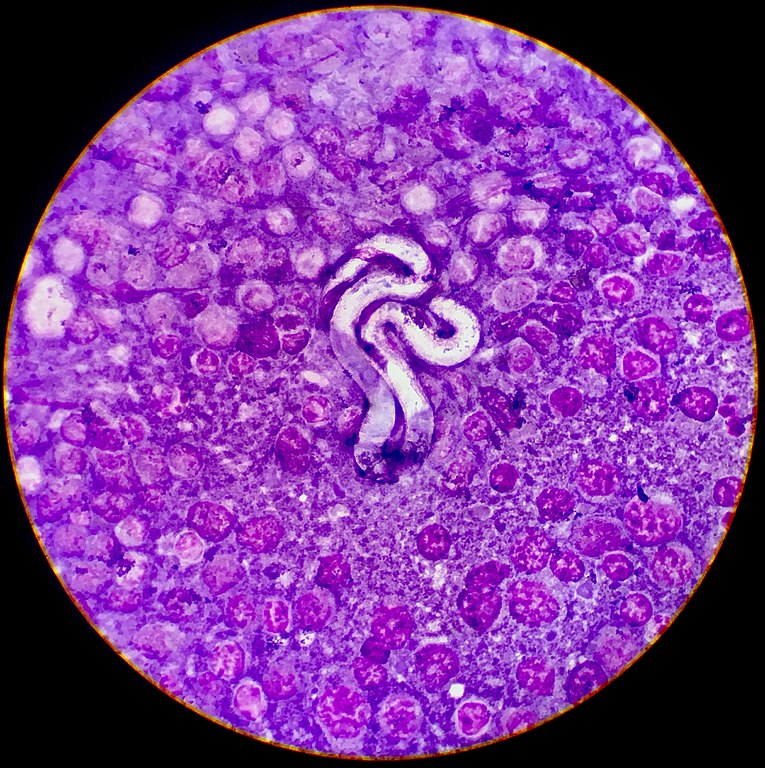Preventing Heartworm Isn’t Rocket Science

Pet parents need to protect their fur-family by knowing how to prevent heartworm in dogs, cats, and ferrets.
Take a look at the Heartworm Prevalence Map, provided by the Companion Animal Parasite Council (CAPC). You will see that pets in every state in the country are at risk for heartworm disease. No geographic area is exempt from this deadly disease.
Heartworm is a serious disease that can be potentially fatal to infected animals. Heartworm disease can be transferred to humans as well via infected mosquito bites.
Heartworms live in the heart and lungs of infected dogs and cats. Heartworm larvae, called microfilaria, travel through the blood vessels, eventually becoming adult worms that join the others in the heart and lungs. These worms collect in numbers that can reach the hundreds. If your pet has a heartworm infection, this can ultimately lead to lung disease and heart failure.
Heartworm Facts & Figures

Below are some eye-opening stats about heartworms provided by Parasitesandpets.org:
- Heartworms can grow up to 16 inches in length.
- There can be as many as 250 heartworms in a dog’s vital organs.
- Heartworm disease is 100% preventable.
- It is much easier and less expensive to prevent heartworms than it is to treat it.
- Your dog might not show any symptoms until heartworms are well-established in its system.
Treatment for heartworm is as expensive as it is a trying process. According to the FDA, it’s very stressful for your dog and can have fatal side effects like blood clots.
If heartworm disease makes our pets so sick but is 100% preventable, why are almost 300,000 dogs in the U.S. infected with heartworms each year? Some pet owners don’t fully understand the risk or neglect giving their pet preventative heartworm medicine on a regular basis.
The good news about heartworm disease? It is 100% preventable. And prevention is the best medicine!
How to Prevent Heartworm Disease in Dogs and Cats
Preventing heartworm disease is ridiculously easy. All you need to do is give the preventative tablet to your pet once a month. If you have trouble doing this, set an alarm on your smartphone, add it to your physical and digital calendars, or ask a friend to remind you as back up. For the sake of your beloved pet, don’t flake on it.
Regardless of how far north you live in the United States; prevention should be used year-round. Climate temperatures are rising and more insects are living through the mild winters.
Even indoor pets should be given heartworm prevention medication. With the innovations of “indoor potty” options, many small, or inner-city dogs are spending less time outside. Many of these owners think their dog is not at risk. All pets should be on prevention, no matter how much time they spend outside, as mosquitoes can always get indoors.
Prevention medication should be given according to instructions. Prevention tablets or topical medications should not be split between pets unless indicated on the product label. This type of drug is not always evenly dispersed among the tablet or chew, and splitting tablets may not ensure proper protection for your pet!
Signs of Heartworm Disease in Dogs

As mentioned, unfortunately, symptoms of heartworm disease won’t show up until it is well-established. Here’s what to look out for in the early stages:
- Coughing
- Lethargy/fatigue
- Decreased appetite
- Weight loss
Advanced heartworm symptoms that require emergency surgery:
- Swollen belly from excess fluid in abdomen
- Labored breathing
- Pale gums
- Dark-colored urine
Signs of Heartworm Disease in Cats

According to the American Heartworm Society, heartworm in cats differs from dogs in that most worms don’t survive long enough to get to the adult stage. As a result, heartworm disease often goes undiagnosed until it’s too late.
Symptoms include:
- Coughing
- Asthma-like attacks
- Vomiting
- Lack of appetite
- Weight loss
Don’t Be a Flake
Protect your pet by staying educated about heartworm prevention. Ensure your pet is safe by giving them preventative medicine each month.
We encourage you to learn more about preventing heartworms at www.heartwormsociety.org and talk to your veterinarian for more information on testing and prevention today.

